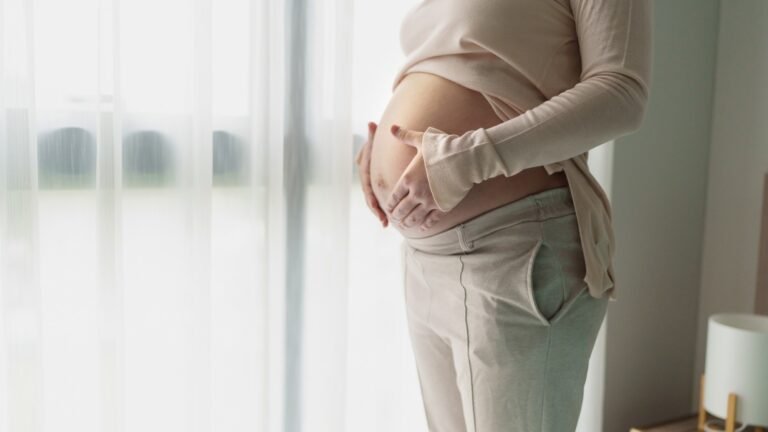In a study recently published in the journal Nutrients, researchers evaluated the consumption habits of several beverages among pregnant women in Shanghai and their health effects on mothers and their offspring.
 study: Association between beverage intake during pregnancy and adverse maternal and fetal outcomesImage credit: mojo cp/Shutterstock.com
study: Association between beverage intake during pregnancy and adverse maternal and fetal outcomesImage credit: mojo cp/Shutterstock.com
background
The rapid increase in consumption of sugar-sweetened beverages (SSBs) and non-sweetened beverages (NSSs) has raised health concerns, especially among pregnant women and their children.
Consuming too much SSB can lead to dental problems, weight gain, and an increased risk of chronic diseases such as diabetes and high blood pressure.
Pregnant women who consume large amounts of sugary drinks are more likely to develop gestational diabetes mellitus (GDM), pre-eclampsia, premature birth and long-term adverse effects on the fetus, including birth defects.
Regulating SSB intake during pregnancy is important for the safety of mothers and babies. Previous studies have evaluated packaged SSBs, with limited information on freshly prepared sugar-free beverages.
About the Research
In this prospective cohort study, researchers investigated whether excessive beverage intake in pregnant women is associated with an increased risk of poor outcomes for mothers and their children.
The researchers conducted the survey from April to June 2022 and April to June 2023, using a multistage random sampling method to select individuals from 16 districts in Shanghai. Participants were pregnant women without cognitive impairment who had lived in the community for more than six months in the previous year and were able to walk independently.
The researchers divided each district in Shanghai into five regions, randomly selected two towns from each region, and selected 30 women at different stages of pregnancy from each town. They followed the American College of Obstetricians and Gynecologists (ACOG) guidelines to determine the duration of pregnancy.
They conducted face-to-face interviews and administered questionnaires regarding demographics, including age, education level, employment status, marital status, household income, prepregnancy alcohol intake, use of dietary supplements, and frequency of beverage intake.
Participants recorded the frequency of consumption of each beverage during the previous month with the following options: never, 1–3 times per month, 1–3 times per week, 4–7 times per week, or ≥1 time per day.
The researchers categorised beverages into pure fruit juices (PFJ), carbonated beverages (CB), plant protein beverages (VPB), juice beverages (JB), sugar-sweetened dairy beverages (SDB), sugar-sweetened teas (including freshly brewed milk-based teas (STBs)), lactobacillus beverages (LBBs) and NSSs.
Total beverage intake (TB) included PFJ, CB, VPB, JB, LBB, SDB, NSS, and STB, while SSB included beverage types other than NSS.
The researchers collected follow-up information on newborn births within 12 months of the survey. All pregnant women had given birth by March 31, 2024. The researchers performed logistic regression analysis to determine odds ratios (ORs) for the analysis.
Results and discussion
The study included 4,824 pregnant women from 160 towns, 82% of whom were under 35 years of age. Among them, TB, SSB, and NSS intake rates were 73%, 73%, and 14%, respectively, with mean volumes of 67 mL, 65 mL, and 17 mL.
SSB was the predominant type, accounting for 94% of TB consumption. Among SSB, the most commonly consumed fluids were SDB (25%), PFJ (19%), and STB (13%). The incidence of GDM was 17% and 5.0%, respectively.
Compared with those who did not consume TB, those who consumed TB up to three times a week had a 38% increased risk of gestational diabetes (odds ratio 1.4) and a 64% increased risk of GH (odds ratio 1.6).
Pregnant women who consumed TB at least four times per week were associated with a 154% higher risk of GDM (odds ratio 2.5) and a 169% higher risk of GH (odds ratio 2.7). Similar results were observed in the SSB analysis.
With regard to neonatal health outcomes, TB intake at least four times per week was associated with a significantly higher risk of macrosomia (odds ratio, 2.1) and large-for-gestational age (LGA) (odds ratio, 1.7) compared with non-intakers. The team noted a significantly higher risk of macrosomia (OR, 6.6) and LGA (odds ratio, 7.6) in the NSS analysis.
Sugary drinks can increase blood sugar levels, cause insulin resistance, and increase the risk of gestational diabetes and high blood pressure. Pregnancy can also increase maternal blood sugar levels, which can lead to increased insulin production in the fetus and increased fetal macrosomia.
NSS can affect gut microbiota and metabolic processes, resulting in glucose intolerance and insulin resistance. High intakes of SSB and NSS can cause nutritional deficiencies, worsening GDM, GH, and poor fetal growth.
Conclusion
The study found that while excessive beverage consumption during pregnancy increases the risk of preeclampsia and diabetes, NSS has an even greater impact on the risk of LGA and macrosomia in newborns.
Women who consume sugary drinks four or more times a week are at significantly higher risk of developing these diseases. To reduce these risks, health care providers should suggest dietary changes that minimize the intake of SSB and NSS drinks during pregnancy.
Active alcohol management can help improve maternal health and reduce pregnancy problems. Translating these findings into clinical practice can help identify and manage high-risk pregnancies.
Journal References:
-
Wang, Z.; Cui, X.; Yu, H.; Chan, E.-M.; Shi, Z.; Shi, S.; Shen, L.; Sun, Z.; Song, Q.; Lu, W.; et al. (2024) Association between beverage intake during pregnancy and adverse maternal and offspring outcomes. Nutrients. Doi: https://doi.org/10.3390/nu16152412. https://www.mdpi.com/2072-6643/16/15/2412


